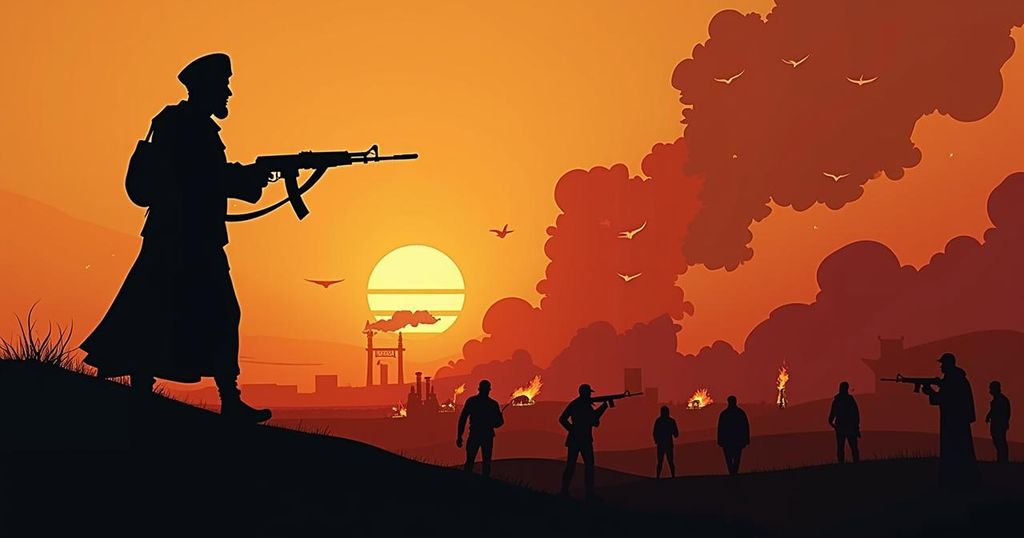Hassan Nasrallah’s recent death leads to a significant escalation in the conflict between Israel and Iranian proxies in the Middle East. While Hezbollah faces a major setback, the implications for Iran’s response remain uncertain, with leadership expressing condemnation but refraining from immediate retaliation. The future dynamics of the conflict could shift dramatically as these events unfold.
The recent confirmation of Hassan Nasrallah’s death by Hezbollah on Saturday signifies a pivotal moment in the ongoing conflict involving Iran and its allied groups across the Middle East. This strike by Israel, which involved the destruction of three apartment buildings alleged to serve as Hezbollah’s underground headquarters, dramatically escalates Israel’s efforts against Iranian proxies. Nasrallah’s demise represents a severe setback for Hezbollah, a key military asset in Iran’s strategy against Israel, potentially altering the operational landscape for both Israel and Iran in the region. While Israel may feel a reduced threat following this loss, the implications for Iranian response remain unclear at this time. Amidst escalating tensions, Iranian leadership has publicly condemned the attack, with Ayatollah Ali Khamenei affirming support for Hezbollah, yet they have refrained from immediate retaliatory actions.
The conflict involving Hezbollah and Israel has history rooted in regional power dynamics, especially concerning Iran’s efforts to project influence through various proxy groups, including Hamas and the Houthis. This intertwines with broader geopolitical tensions as these groups often serve as frontline defenses against Israeli actions. The implications of Nasrallah’s death signal not just a shift in military capability for Hezbollah, but also a potential reevaluation of Iran’s response strategies moving forward, as they navigate the complexities of retaliation and escalation in a fractious region.
The killing of Hassan Nasrallah is poised to have significant repercussions for both Hezbollah and the broader conflict in the Middle East. While it might diminish Hezbollah’s immediate military effectiveness, the long-term reactions from Iran and its allied entities remain uncertain. The potential for increased regional instability or further confrontation hinges upon Iran’s next moves in response to this critical loss. The current status suggests that an unfolding cycle of retribution could still take shape, despite initial inaction from Iranian leadership.
Original Source: www.nytimes.com






